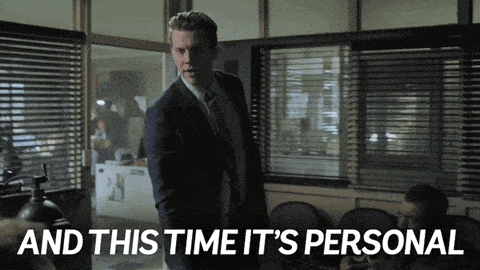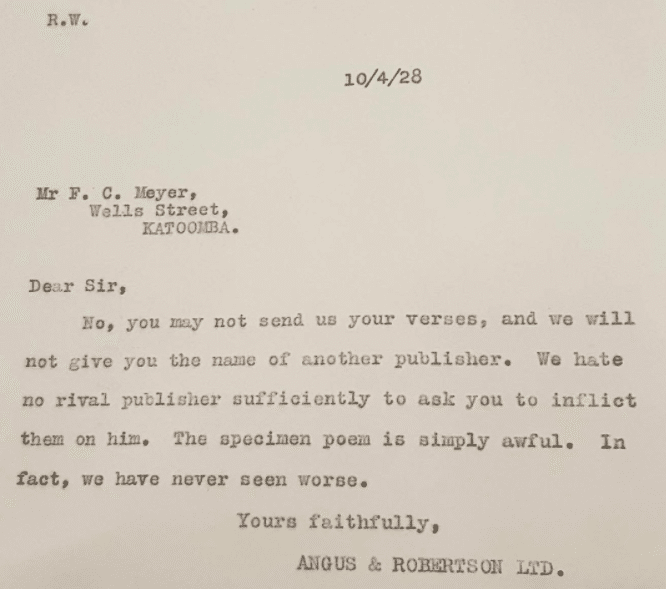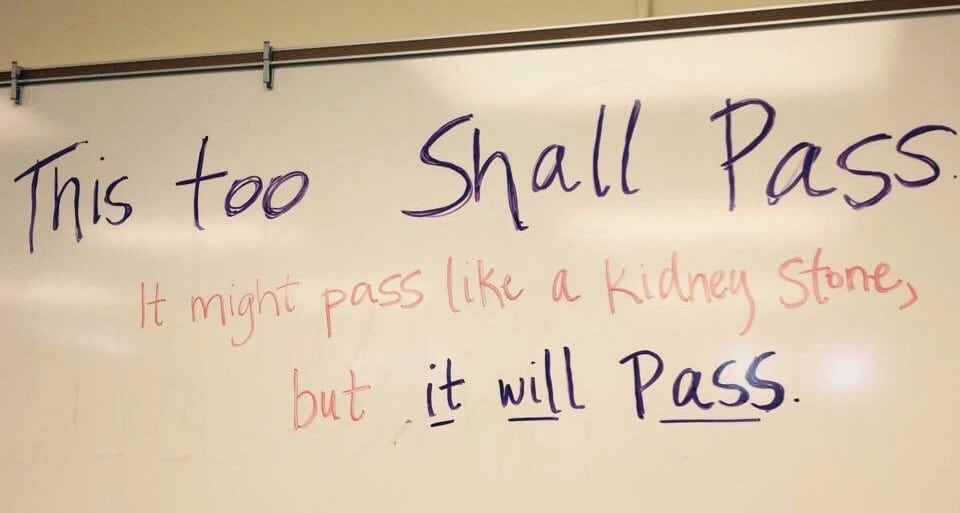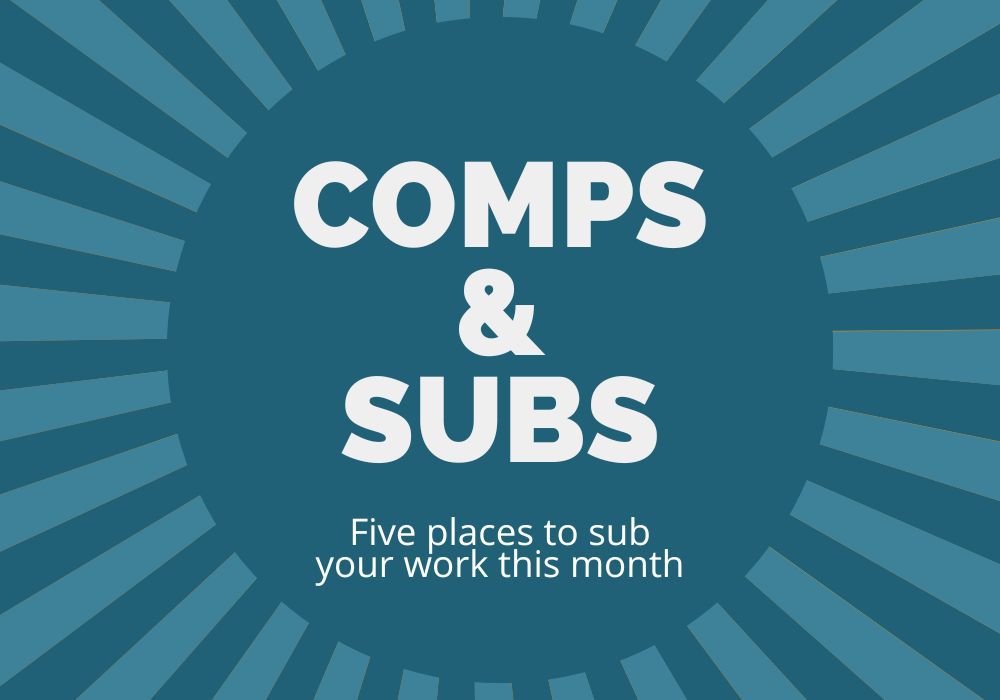Not all rejections are equal. Some knock you flat. Some linger like a festering wound. Some you can brush off with a ‘meh’. And some are almost as exciting as an acceptance – that feeling of ‘almost there’ that gives you hope and encouragement and help to make you a better writer.
Look, we knowww rejection sucks, even when it’s somewhat positive, but what matters is how you REACT to it. If your go-to response is to sob into your tea and swear that you’ll never write another word again, chances are you won’t get very far. But if you take it on the chin (a little wibbling is acceptable) and look at things objectively, you’re more likely to bounce back, keep going and get that publication you’re dreaming of.
One thing we’ve found really helps with reacting productively to rejection is being able to determine what type of rejection you’re dealing with. Is it worth moping about or should you just chalk it up as another loss and move along? Is it a situation where you could legitimately ask for more feedback or does ‘no’ really mean ‘no’? Is it a sign that your writing is horrifically bad and you should give up right now or are you being just a leeeeetle bit dramatic?
So, what are the various species of rejection lurking out there for unsuspecting writers, and how do we deal with ’em? Are you sitting comfortably? Then we’ll begin:
#1: The flat out ‘NO’ rejection:
Let’s say someone’s told you outright that they think your writing is shit. Your work has been rejected as hard as it can possibly be rejected. No. Nope. No way. Never. It’s rare that anyone is this harsh outright but it does happen. And this one’s right up there at the sharp end of the stick. But as much as you might want to throw your laptop out the window and curl up into a shivering ball of angst, you’ve still gotta look at it objectively.
Who is this person passing judgement on your work? Do you respect their opinion and expertise?
If yes, then take a step back and consider whether they actually have a point – do you (deep down, somewhere in the depths of self-awareness) kind of agree with them? Remember, this doesn’t necessarily mean your writing is absolute garbage, but it might raise some red flags about your plot or characterisation or your style (all of which are fixable, by the way). All critique usually has an element of truth in it – even if things aren’t quite as bad as you initially think. Also, be aware that you’re more likely to get dismissive feedback like this if you go looking for critique with a very early draft of your work. Don’t be impatient – don’t send out your work until it’s really ready so your readers can respond to a properly polished and developed piece of writing instead of a rough-at-the-edges draft.
If no, then why are you wasting time worrying about one person’s opinion? Criticism should be constructive, after all, not an all-out bitchfest. Have you had other similar responses, or is this person an outlier in an otherwise agreeable bunch of feedback? Don’t take individual feedback to heart. Each person is going to react differently, and not everyone’s gonna love what you do. Get a second opinion. Get a third opinion. And a fourth. Build up a little army of tried and trusted beta readers whose feedback you value. And take every critique with a pinch of salt. Only YOU know how to craft your story – you might cherry pick snippets of advice from all sorts of places, but it’s up to you to implement it, disregard it, or suit it to your purposes.
#2: The form rejection/radio silence

Ughhh we’ve all been there. You send out a submission and you wait patiently for a response… Weeks. Months. More? Then that dreaded form reply: “Thanks for your submission. Sorry, it’s not for us” or variations on the same spirit-crushing theme. Or worse – you never even hear back. It’s as if your work never even existed. No wonder writers get a little tired of the submissions game when all you get for your efforts is a copy and paste reply.
BUT WAIT. Let’s think for a minute about the people behind the form rejection. Lit mag editors and competition organisers are very often unpaid volunteers, running their organisations through pure passion alone. If they are paid then it’s certainly not enough to be sitting back sipping oak-aged whiskey laughing maniacally at the growing slush pile they’re deliberately ignoring. People work really hard in publishing – especially indie publishing – and even lit agents often read manuscripts on their own time, at home, off the clock, just to keep up with their inbox.
So don’t take that form rejection personally. Yeah it sucks, but it’s just not always feasible for editors or judges to give personal feedback to every single writer who submits.
And, even more importantly – a form rejection does NOT mean your writing is crappy. There are a GAZILLION different reasons why you might get rejected, all of which are totally subjective. This brilliant article by Allison K Williams sums up exactly why ‘Rejection is not Feedback.’ Perhaps your style of writing just doesn’t suit this particular lit mag. Perhaps it’s down to personal taste and this particular competition judge doesn’t like your subject matter. Perhaps this particular lit agent has just signed another writer who writes in a similar genre and doesn’t want to compete within their list. Perhaps your story just isn’t ‘right’ for whoever and whatever you’ve sent it to. Can you honestly explain WHY you like or dislike particular books or stories? Sometimes it’s just ‘because’.
In the case of radio silence, however, it’s possible that your submission just got lost or is waiting there still, buried under the slush pile. If the comp/mag/agent you’ve sent it to hasn’t explicitly said that ‘no response means no’ then it’s entirely acceptable to send them a gentle nudge checking whether they’ve received your submission after a reasonable amount of time. And if you still get no reply, it’s probably worth just letting it be.
In all cases, remember that form rejections/no replies do not mean you should give up. Remember it’s all subjective. Give your submission a once-over, pick a new target, and MOVE ON.
#3: The personal rejection:

Treasure your personal rejections. Even if they’re just a sentence long. Personal rejections mean someone’s read your work, deemed it worth commenting on, and taken the time to let you know what they think. A personal rejection is a GEM in a pile of rejection-rocks. In most cases, you’re likely to get some useful feedback with a personal rejection – maybe the editor liked your writing but wasn’t so sure about the story, or maybe they didn’t want this particular submission but request that you send them something else. Or maybe they want to offer you some personalised critique to help you improve your writing. ALL OF THIS IS GOLD. Treasure it, use it, and let it bolster your confidence. This is as close to an acceptance as you can get on the rejection scale.
Also, take heart that (most) editors and literary agents aren’t half as harsh as this brutal smackdown from back in 1928:

#4: Self-rejection

Gahhhhhhhh this is the worst of all rejections. And it’s entirely self-inflicted. Don’t do this to yourself. Just don’t. Telling yourself you’re never going to be good enough, or perpetually picking holes in your work, or constantly doubting your abilities is only going to drag you further down into the pit of despair. If you don’t believe in your work, who the hell else is going to? You can’t wait around for someone to come along and tell you you’re brilliant. If you’re not satisfied with your writing, WRITE MORE, SUBMIT MORE, TAKE A COURSE, GET MORE FEEDBACK, GET BETTER. The only way to improve your writing is to KEEP WRITING.
Focus on your strengths – pick out bits of your writing that you’re really proud of. Analyse why they work and set your bar at this level of quality. Stop comparing yourself to others – aim for your own personal best. Set yourself a target of X words per week or X submissions a month (check out our monthly list of submission opportunities for a helping hand!) and treat it like any other skill that requires practice to achieve. But don’t trip yourself up before you’ve even started by hating on your own work. Feel the angst, by all means, but don’t let it consume you.
Because if you’ve ever been rejected, YOU ARE NOT ALONE – you are part of a grand, long-standing tradition of creatives brave enough to put their work out there:
To a writer—or an aspiring writer—rejection is the norm. Some amount of rejection is preferable, even: if I ever make it to a point where most of the essays and short stories I send out are accepted right away, I’ll know that either I’ve made it or, more likely, I’m aiming too low.
So pick yourself up, polish up your work, start hunting for new writing opportunities to submit to, and get back on that literary horse.
And remember:






